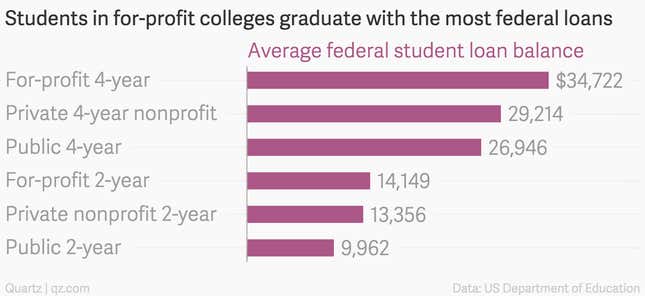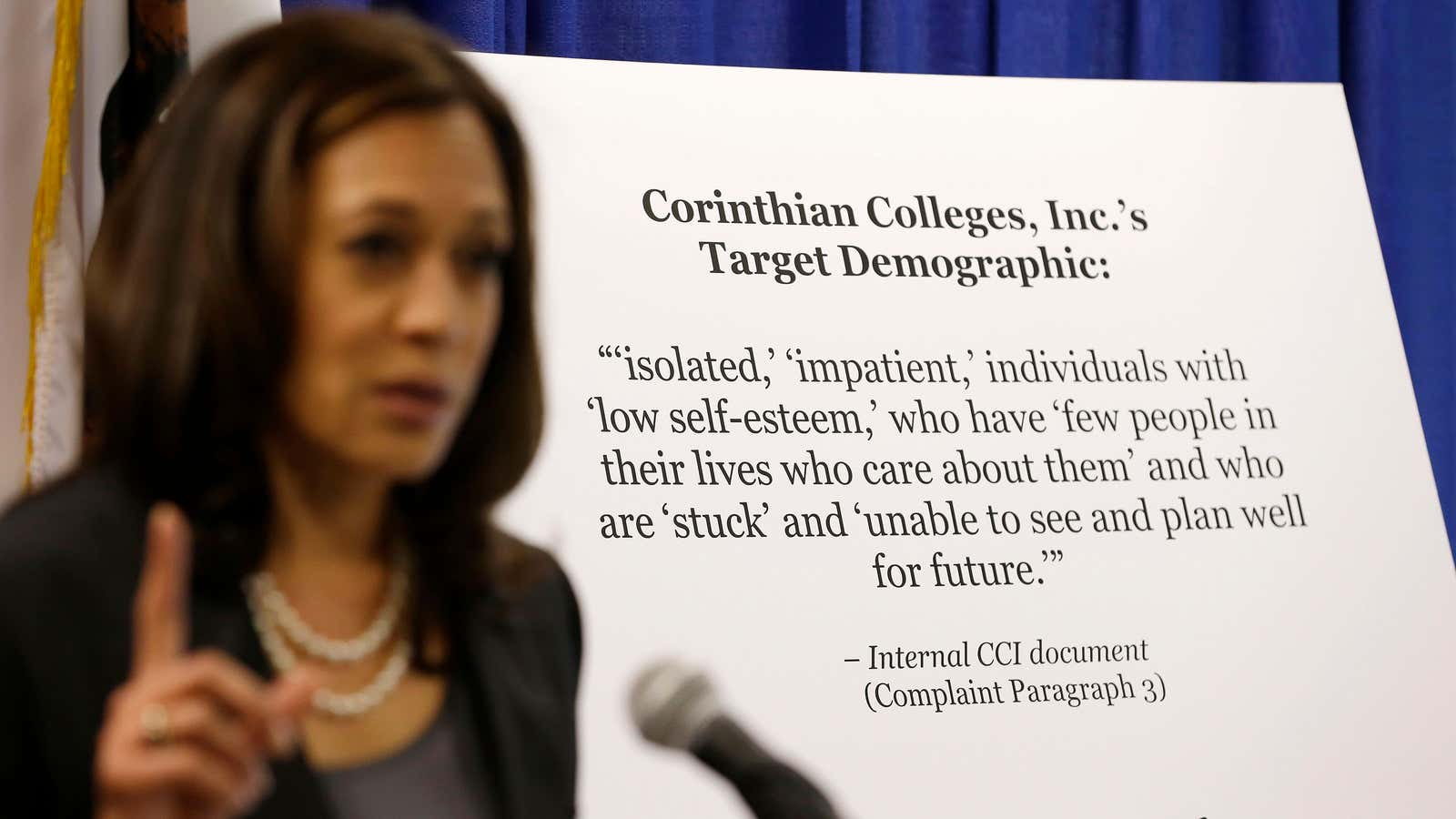Corinthian Colleges, a company that owns vocational for-profit colleges, is just one of dozens (pg. 20) of companies in the US that allegedly preys upon financially insecure students with false claims about the quality of the education they will receive. Now, at least 100 former Corinthian students are refusing to pay back around $3.3 million in federal and private student loans, claiming that the school defrauded them.
In November, the Department of Education (DOE) said that Corinthian “failed to address concerns about its practices, including falsifying job placement data used in marketing claims to prospective students and allegations of altered grades and attendance.” It has forced the company to close some and sell many of its colleges and transition them to into nonprofits. Some of the students bringing claims contend they weren’t given the option to apply for a loan discharge when the closures were announced. Others say that they were defrauded by attending schools that allegedly engaged in predatory lending and prioritized unethical recruitment practices over quality of education.
The DOE did not tell Quartz when it plans to make a decision about canceling these loans. But the strikers have gotten the federal government’s attention—organizers will meet with the Consumer Finance Protection Bureau on March 31.
The “Corinthian 100,” as they call themselves, sent a letter to the DOE last month when they were only 15 strong, demanding that the federal government forgive their loans. They wrote:
We trusted that education would lead to a better life. And we trusted you to ensure that the education system in this country would do so. But Corinthian took advantage of our dreams and targeted us to make a profit. You let it happen, and now you cash in.
Corinthian has not replied to requests for comment.
The government has already worked with the Consumer Finance Protection Bureau to forgive $480 million that former Corinthian students owed in private loans, and other groups are trying to get rid of more that private debt.
Most colleges in the US are not-for-profit institutions, which allows them to function with a focus on quality of learning, research, and student experience. Many big for-profit institutions like Corinthian are publicly traded and have the pressure of pleasing shareholders rather than focusing on students, says Ben Miller, a senior policy analyst at the New America Foundation.
For many for-profits, that has meant rapid expansion with little to no emphasis on quality. The standards for admission are low and the cost is high. But despite the high cost, they appeal to students who have no other options for a higher education and they offer more loans to unqualified students, Miller says.

The Corinthian 100 are part of the Debt Collective, which is encouraging more former students to join what they call the debt strike, refusing to pay their private and federal loans.
The DOE told Quartz on March 16, “As we continue our conversations with students and advocates about options for borrowers, we also encourage borrowers to continue paying their student loans and to explore the various income-based repayment options offered by the Department in order to avoid risking the serious consequences of default.” It’s unlikely that these 100 loans will be forgiven without canceling the rest that former Corinthian students owe, which by one estimate stretches beyond $1 billion.

This isn’t the first time that for-profit students are defaulting on their loans, but it is likely the first time that they’re doing it publicly, Miller says. Some of the striking students have already defaulted, which isn’t uncommon, as for-profit students have a higher rate of default. Students with multiple loans might be more likely to pay back a mortgage or car loan than an educational one, Miller says. “If you have a car loan and you don’t pay it, they take away your car,” Miller says. “You can’t repossess someone’s mind.”
The billion dollars that Corinthian students may owe is just the tip of the student debt iceberg—outstanding federal student debt in the US has surpassed $1 trillion, and affects people in every part of the country. Forgiving these loans could open the door to even greater change in the student loan system.




